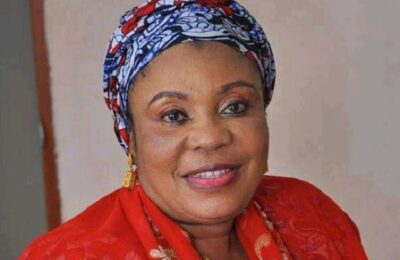For leaders, essential communication strategies in the public sector help ensure a message or program is understood and gets through to the target audience with as much clarity and conciseness as possible. These strategies can directly impact different elements of a program’s success and operation, making them vital to develop as best as possible, this is participatory governance and is the order of sane and working democracies across the globe. The more informed the citizens are about the policies of their government the more they develop interest in participation either in support or against.
So many policies of government have been attacked by the masses simply because they were not well informed or involved in the process or processes that led to the formulation and implementation of those policies. After all it is a common parlance that what people do not understand they tend to ignore or attack. Thus, it is of utmost importance for the masses to ‘flow’ with their government and this is something the Presidency of Asiwaju Bola Ahmed Tinubu has promised to take seriously.
Renewed hope in itself is a message. According to Woodrow Wilson ‘The ear of the leader must ring with the voices of the people’ and vice versa.
Apart from being explicit about programs and policies, it is also very crucial to reach out to the masses with messages of hope and inspiration whenever the pulse of the populace indicates trust deficit even though this must be beyond rhetoric.
For instance in 1984, under the military, there was a television commercial by NTA featuring a character called Andrew who bemoaned the hardship occasioned by lack of basic amenities like power, roads and water and wanted to leave Nigeria for greener pastures abroad saying to his listeners “I’m checking out,”. But he was persuaded to stay back, that there was hope. The jingle became the most popular back then in what will be referred to today as “viral”. It was such that whenever anyone experienced some frustrations about life in Nigeria then, what usually followed was, “I’m checking out” in what in today’s term is known as ‘japa’. That commercial in itself was not just a tool for mass enlightenment but for awakening patriotism and belief in ones country.
The government of the day must attempt to constantly match communication with real time actions and as the policies rolls out because the world today is over informed from various sources 24/7. So our own government must be alive and deliberate at pushing through the necessary and productive awareness to its citizens. This means public leaders must communicate the concerns, needs, and goals of all constituents, even to those who may not embrace a certain program or initiative at first. Public policy leaders can construct effective policies by building this mutual path of understanding through strong communication, not just about stating facts but conveying facts in a manner that fosters a sense of trust and responsibility to the public, so it doesn’t come off as manipulative spins.
Our government need to design a clear two-way relationship with an effective engagement strategy which can yield several benefits, for instance proper representationthrough direct engagement with people within heterogeneous communities can ensure policies are shaped holistically and not geared toward a smaller but vocal communal segment. Secondly, with a better understanding of needs, our leaders can more effectively dive into the minutiae of public policy issues based on hearing how they specifically impact people within a community. Thirdly, with a deep sense of community ownership, more engagement with a community can allow its members to provide a deeper insight into a proposed policy based on a community’s historical and cultural context since informed and engaged citizens are better partners.
Our nation has experienced some turbulence in the past decade due to improper management of information leading to crisis. Going forward, the occurrence of such must be curtailed to the barest minimum through swift and strategic dissemination of information by the most capable hands in the land in synergy with relevant security agencies. This not only involves getting word out at the earliest possible outset of a crisis but also constantly and clearly communicating data to the public as the crisis evolves.
Effective public leaders will fully understand how to adjust their communication strategies to directly address different situations. Regardless of the goal or situation, good public leaders have the leadership and critical thinking skills to build a strategy that optimizes information. Once this crucial data is gathered, leaders need to pare it down in a way that conveys the most essential information to the public in a clear, unambiguous manner even in languages that are native to her citizens. Doing so gives the public its best chance of fully grasping the information that can impact them the most. It’s all about information dissemination, engagements and buy in/ building trust between the led and the leader after all according to HE Luccock ‘No one can whistle a symphony. It takes a whole Orchestra to play it.’
In conclusion, since ‘The art of communication is the language of leadership’ according to James Humes, this government under the leadership of President Bola Ahmed Tinubu is aimed at getting it right because as a leader whose backbone is the people and whose message of renewed hope resonates with where the citizens are as they look forward to a prosperous nation.
– Ronke Bello PhD, a Publicist and Policy Analyst, member Public Affairs Directorate of the 2023 APC Presidential Campaign Committee, writes from Abuja.




